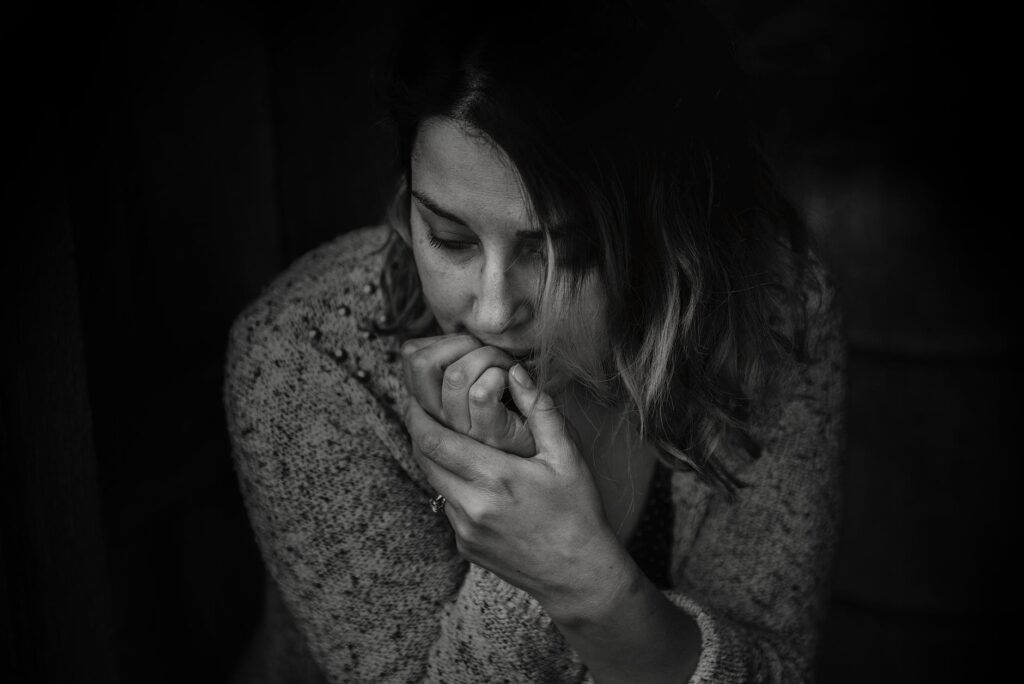Huttons CBD
Anxiety in Women
From puberty to age 50, women are almost twice as likely as men to develop an anxiety disorder.
No one should have to feel anxious throughout their day, and despite it being helpful in some cases, this feeling can be distressing. The effects of anxiety can be just as serious as physical pain and the same, if not more challenging, to relieve.
Signs and symptoms of anxiety:
- Feeling nervous, irritable or on edge
- Having a sense of impending danger, panic or doom
- Having an increased heart rate
- Breathing rapidly (hyperventilation)
- Sweating
- Shaking/trembling
- Difficulty concentrating
- Insomnia/trouble sleeping
- Experiencing gastrointestinal (GI) problems
If you or someone you know express these symptoms, please seek professional help.
There are various reasons why anxiety can be seen among women more than men. The leading theory is hormonal changes throughout a woman’s lifespan. This can have the same said about brain chemistry as it is different to a man. Things such as reproductive events can be extremely difficult to cope with. The sudden oestrogen and progesterone will increase during pregnancy which can increase the chances of obsessive-compulsive disorder (OCD)
Types of anxiety disorders:
Generalized Anxiety Disorder, or GAD, involves excessive anxiety and worry about ordinary activities such as health, family, money or work. GAD is intense, and although we all experience anxiety, GAD causes every-day to be anxiety induced, interfering with all general life activities.
Panic Disorder is diagnosed in people who experience spontaneous panic attacks and, as a result, are preoccupied with the fear of a recurring attack. Because these attacks are unpredictable, many women may have intense anxiety between panic attacks.
Social Anxiety is diagnosed when people become overwhelmingly anxious and self-conscious in everyday situations. The anxiety can be around crowds, specific situations or around leaving the house – linked to agoraphobia.
Treatments:
If you have an anxiety disorder, you should speak to your GP. Many women have turned to Cognitive Behavioural Therapy (CBT), which effectively reduces anxiety in some people. There are also medication and lifestyle changes people can make to improve their mental health, such as engaging in regular physical activity and doing mindfulness meditation and yoga.
Many of our customers have found CBD helpful in managing anxiety. You can find our full range of products here.

